The content of the article
Such a phenomenon as meteorological dependence is the hypersensitivity of the human body to unexpected weather changes. It makes itself felt in a wide variety of manifestations, which include drowsiness, migraines, joint pain, increased fatigue, muscle pain, and much more.
What is weather dependence?
Today, more and more people associate the deterioration of their well-being with weather conditions, especially for women. Magnetic storms, light flashes, even ordinary fog, they believe, can lead to a deterioration in health.
In fact, a person is in constant contact with nature, and the weather can have a significant impact on well-being. The nervous system reacts quite sensitively to any, at first glance, insignificant, changes in weather conditions. And probably everyone notes this: on a bright sunny day, the mood improves significantly, a person is charged with energy, cheerfulness and positive emotions. At a time when it is slushy and rainy, it tends to sleep, a melancholic, similar to depressive state occurs.
From all that has been said, it can be concluded that meteorological dependence is the reaction of the human body to natural phenomena and changes occurring in the external environment. This condition provides the mobilization of the immune system, due to which the body collects all its forces to combat negative external factors.
Weather dependence is more pronounced in people who suffer from various chronic diseases.
Why meteorological dependence develops
This state is considered one of the most pressing problems of the modern world, linking it with a constantly progressing civilization. Since before man was inseparable from nature: he went to bed and got up in the morning with the sun, in the summer he worked hard and kept food supplies, in the cold season he mostly rested. Due to the fact that now everything is ruled by progress in the modern world, a huge amount of technology has appeared, a violation of the natural balance has occurred. The life of a modern person is associated with a variety of household appliances and electrical appliances, cars, there is always a lot of noise around. All this prevents the body from being in contact with nature. No longer is the normal adaptation of the human nervous system to weather changes, its proper reaction to changes in temperature, as happened before - hundreds and thousands of years ago.
Each person has a different reaction to sudden weather changes, but for many this is a serious problem. A weak organism, in which the protective forces are lowered, is much more susceptible to weather sensitivity and gives a more painful reaction to various changes in the external environment.
Provoking factors that adversely affect health:
- temperature fluctuations;
- increase in humidity;
- solar flares;
- contaminated air;
- magnetic storms;
- reduced level of oxygen concentration in the air;
- fluctuations in atmospheric pressure.
The causes of hypersensitivity to the weather in some cases are stress, poor health, puberty in adolescence, menopause. According to experts, the occurrence of meteorological dependence in humans can be explained by heredity.In particular, the manifestations of the disease are often noticeable before temperature changes, as well as precipitation.
Residents of large cities are most affected by weather dependence, and those who live in villages, for very obvious reasons, have stronger immunity, so the process of adapting to changes in the external environment is easier for them.
The air of megacities is saturated with heavy ions, which reduce the amount of sunshine, which is essential for health. There is a violation in the natural exchange of moisture, for this reason those who live in large cities are much more difficult to tolerate hot weather.
Natural disasters often cause exacerbation of diseases of the cardiovascular system, the occurrence of angina attacks, strokes, heart attacks, fainting, and premature onset of labor. Temperature differences can cause an exacerbation of allergies, asthma, infectious diseases, lead to disruption of the functioning of some internal organs.
High humidity has a negative effect on the musculoskeletal system, leading to an increased risk of colds and inflammations.
Fluctuations in atmospheric pressure affect the work of the heart, blood vessels, lungs. Oxygen starvation appears, which is manifested by a lack of oxygen, weakness, the occurrence of shortness of breath.
High nebula and windy weather cause insomnia, anxiety, and in patients with instability of the psyche - vasospasms.
Magnetic storms lead to problems in the work of the heart and blood vessels, central nervous system, respiratory organs. Most people who have diseases of the cardiovascular system have high weather dependence - weather changes lead to the fact that the process of oxygen supply to all organs, including the heart, is disturbed, and the risk of thrombosis is increased.
Symptoms of weather dependence
Manifestations of weather sensitivity will differ depending on which internal system is affected. Thus, several types of meteorological dependence are conventionally divided, each of which is characterized by its own symptoms.
Heart symptoms
In patients with heart disease, mensensitivity is manifested as follows:
- increased or slower heartbeat;
- chest pain;
- feeling of lack of air;
- rapid breathing;
- disturbed heart rate.
Cerebral symptoms
If there are even minor disturbances in the functioning of the brain or vegetative-vascular dystonia, the following symptoms appear:
- noise in ears;
- migraine;
- Dizziness
- the appearance of "flies" before the eyes.
Astheno-neurotic symptoms
It is observed in people with problems in terms of neurology. Among the clinical manifestations, the following can be distinguished:
- lethargy;
- irritation;
- impairment of ability to work;
- fatigue;
- jumps in blood pressure;
- depressed state.
Mixed symptoms
With this type of meteorological dependence, reactions from the central nervous system, as well as the heart and blood vessels, are combined. Characteristic manifestations:
- heart palpitations;
- irritability;
- fatigue;
- lack of air;
- impairment of working capacity.
Uncertain symptoms
Symptoms such as:
- general malaise;
- joint pain
- muscle pain
- broken, inhibited state.
Methods of treating weather dependence
The most effective preventive measure will be a regular stay in the fresh air, obtaining the optimal ratio of water, sun and oxygen.
It is quite difficult to completely get rid of the disease, since it is necessary to approach this issue in a comprehensive manner. For this reason, treatment should primarily be aimed at eliminating pathologies that provoke the development of meteosensitivity.In addition, meteorological reports should be monitored. This will allow you to take appropriate funds in advance, after consulting with your doctor. In some cases, therapeutic massage helps to improve the condition.
If the weather changes, you need to take medications for prophylaxis in advance: people suffering from hypertension should drink a drug that reduces blood pressure, and from hypotension - tonic. It is not recommended for people with weather dependence to sharply change climatic conditions, however, in case of urgent need to make a trip, you need to drink a vitamin complex some time before it. It should be remembered that any treatment should be agreed with the doctor to avoid the development of complications.
Drug therapy
Depending on the cause that triggered meteosensitivity, the following medications may be prescribed by a doctor:
- Adaptogens. They are prescribed if the condition is caused by a malfunction of the vessels. Ginseng and Tonginal have a good tonic effect. Do not take hypertensive patients.
- Diuretic and homeopathic remedies. They are used when the body's reaction to weather changes is manifested by increased pressure. From homeopathy, the drug Lymphomyosot should be noted, which helps to improve the outflow of lymph.
- Medications that improve the functioning of the brain, for example, Lucetam.
- Pain relievers, the active ingredient of which is Ibuprofen, in situations where joint pain is bothering.
- Medicines whose actions are aimed at improving blood circulation - Cavinton.
- Analgesics - for headaches. Barbiturates - for sleep disorders.
- Antidepressants and tranquilizers - in situations where meteorological dependence is provoked by neurotic diseases.
Nutrition
On days when fluctuations in external pressure are observed, it is advisable to include in your menu products that contain a lot of potassium. These include bananas and dried fruits, especially raisins and dried apricots.
It is recommended to reduce the consumption of sugar and meat dishes and increase the number of foods containing a large amount of vitamins.
Aromatherapy
Symptoms of weather dependence will help relieve aromatherapy. For inhalation, you should use essential oils: eucalyptus, lavender, camphor, cedar, lemon, rosemary, fennel.
Phytotherapy
Herbal infusions and decoctions will be excellent helpers in the fight against manifestations of weather sensitivity. Plants such as hawthorn, valerian, horsetail, and motherwort help well.
What to do with weather dependence
The treatment of meteorological dependence is not carried out separately, the therapy should be comprehensive. First of all, measures should be aimed at combating the disease - the culprit of this condition. The deterioration of health caused by weather changes should be the reason for contacting a doctor. A thorough diagnosis is necessary to determine which disease caused this condition.
Recommendations to weather dependent people include the following:
- Avoidance of stress and excessive emotions.
- Acceptance of sedatives, but only by agreement of this issue with the doctor.
- Replacing the usual drink with water with lemon juice.
- Add soothing herbal supplements to the bath.
- Reception of infusions: peppermint, calendula, rose hip, celandine.
- Conducting breathing exercises.
- Meditation. Yoga classes.
- Exercise caution.
In addition, it is recommended to ensure a full sleep. If you feel worse, you should lie down to sleep in the afternoon, at least for half an hour.
So, the malaise resulting from atmospheric phenomena is a condition that is known to a large number of people. Each organism reacts to similar individually. Despite the fact that the symptoms of meteosensitivity are rather unpleasant and sometimes do not allow to lead a normal lifestyle, this phenomenon is mainly amenable to therapy with drugs or folk remedies. But you must definitely visit a doctor to know exactly what diseases caused meteosensitivity.
Video exercise for relieving headache in weather dependence

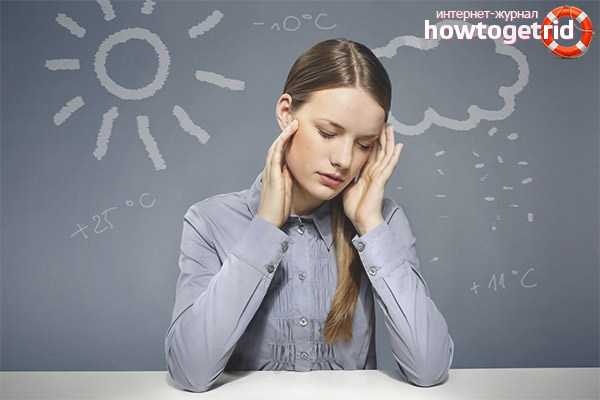



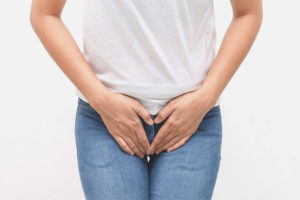
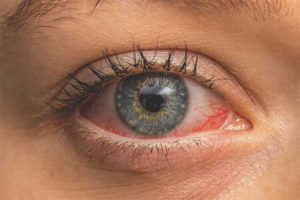

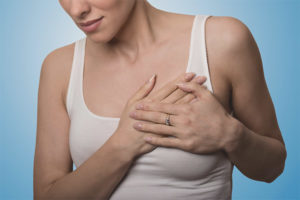
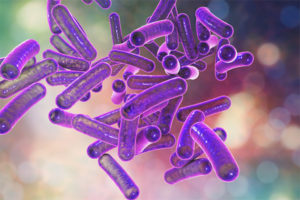
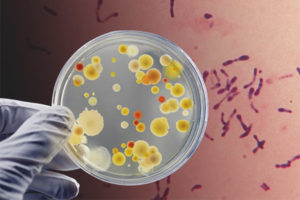

Submit